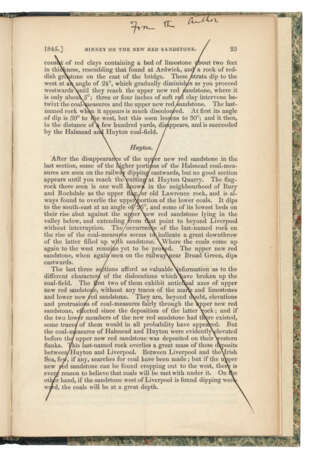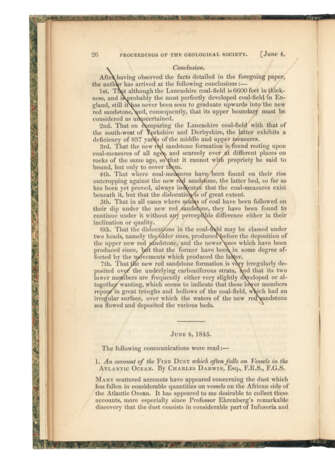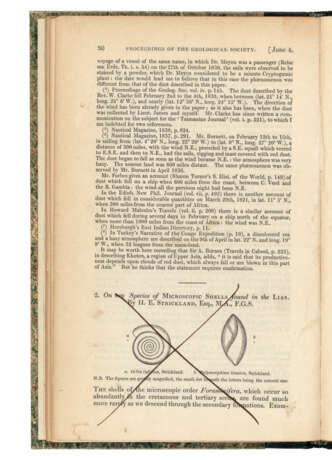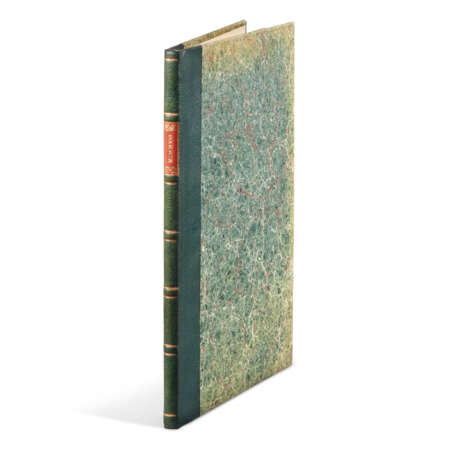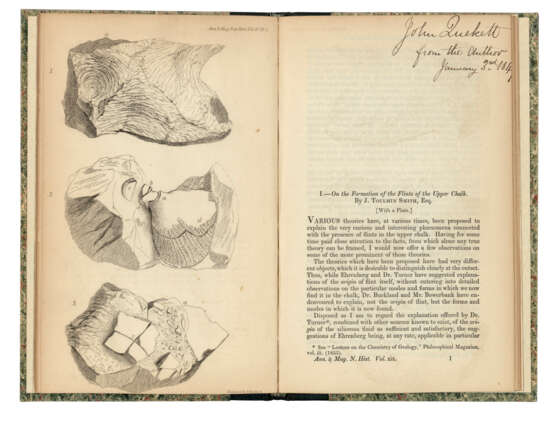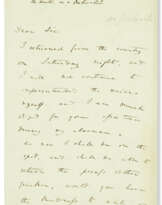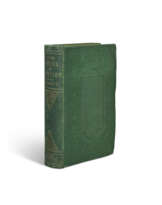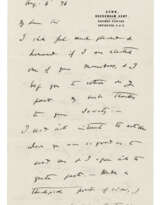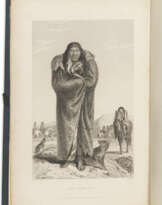ID 794439
Lot 138 | DARWIN, Charles Robert (1809-1882)
Valeur estimée
£ 3 000 – 5 000
‘An account of the fine dust which often falls on vessels in the Atlantic Ocean.’ Extracted from: Quarterly Journal of the Geological Society of London (Proceedings), vol. 2, pp.26-30. London: 1846.
Presentation copy, inscribed in Darwin’s hand, of an important step towards his theory of evolution. In January 1833, while the Beagle was at St Jago (Santiago) in the Cape Verde islands, over 300 miles from the shore of Africa, Darwin witnessed dust storms blowing Saharan sands over the archipelago. Intrigued, he duly collected samples. Later, in 1838, HMS Spey, sailing in the area north of the Cape Verde islands, encountered a much bigger dust storm, and much larger samples were obtained. Darwin sent both sets of samples to Christian Gottfried Ehrenberg in Berlin. Darwin reports in this paper ‘Professor Ehrenberg’s remarkable discovery that the dust consists in considerable part of Infusoria and Phytolitharia … including no less than sixty-seven different forms’ (p.28). However, Darwin goes onto note that these specimens are not typical of Africa, and he is at a loss to explain the discovery of two South American species, considering the wind direction. Nevertheless, these observations and discoveries were another important step in Darwin’s thinking, because, if all life on earth is related through common ancestry, some organisms had to have found ways to travel to new locations. In 2007, analysis of the original dust samples using geochemical analyses, molecular-microbiological methods, scanning electron microscopy and cultivation revealed not only was much of this material in fact of African origin, but also the presence of live bacteria and spores, thus proving microbes that adhere to Saharan dust can live for centuries and easily survive transport across large distances over oceans.
The present lot is an extract from the serial publication, with Darwin crossing through the text on pp.25, 26 and 30 of the preceeding and following text; at the head of p.25 Darwin has inscribed ‘From the author’ in matching ink.
The recipient is most probably John Thomas Quekett (1815-1861), the microscopist; the extract is present with two other offprints, one of which is presented to Quekett. The other offprints – both on ‘Flints of the Upper Chalk’ by J. Toulmin Smith – refer to the geological work of James Scott Bowerbank, and it was Bowerbank who introduced Darwin to Quekett in 1848. Quekett not only helped Darwin with Cirripedia, but also would have been extremely interested in the discovery of Infusoria in the sands of the aeolian wind. The reason why Darwin sent an extract rather than an offprint probably lies in the fact that the Geological Society severely restricted the number of offprints it offered to authors. The Council Minutes in the Geological Society's archives for 18 December 1839 reveal that for their larger quarto format periodical Transactions, only 15 copies were offprinted (CM 1⁄5 p.252). Since Darwin only met Quekett two years after the paper was printed, there were probably no more offprints available for circulation. Freeman 1672.
Octavo (203 x 130mm). (Presentation inscription just trimmed by the binder touching 2 letters.) Modern green morocco over marbled paper-covered boards, red morocco gilt spine label (covers a fraction unevenly faded at head). Provenance: authorial ink presentation inscription at head of p.25 and with associated crossing out of adjacent text.
[Bound in the same volume with:] J. TOULMIN SMITH. ‘On the formation of the flints of the Upper Chalk’. Offprint from Annals and Magazine of Natural History Vol. 19, no. 123, pp.1-16. Engraved plate (plate trimmed a bit close). Provenance: authorial ink presentation inscription ‘John Quekett from the author January 3rd 184[7] (date just trimmed by the binder). [And:] – ‘Further observations on the formation of the flints of the Upper Chalk’. Offprint from Annals and Magazine of Natural History Vol. 19, no. 127, pp.289-309.
Special notice
No VAT on hammer price or buyer's premium.
| Artiste: | Charles Robert Darwin (1809 - 1882) |
|---|---|
| Lieu d'origine: | Europe du Nord, Europe, Royaume-Uni |
| Catégorie maison de vente aux enchères: | Médecine et sciences, Livres imprimés |
| Artiste: | Charles Robert Darwin (1809 - 1882) |
|---|---|
| Lieu d'origine: | Europe du Nord, Europe, Royaume-Uni |
| Catégorie maison de vente aux enchères: | Médecine et sciences, Livres imprimés |
| Adresse de l'enchère |
CHRISTIE'S 8 King Street, St. James's SW1Y 6QT London Royaume-Uni | |
|---|---|---|
| Aperçu |
| |
| Téléphone | +44 (0)20 7839 9060 | |
| Commission | see on Website | |
| Conditions d'utilisation | Conditions d'utilisation |
